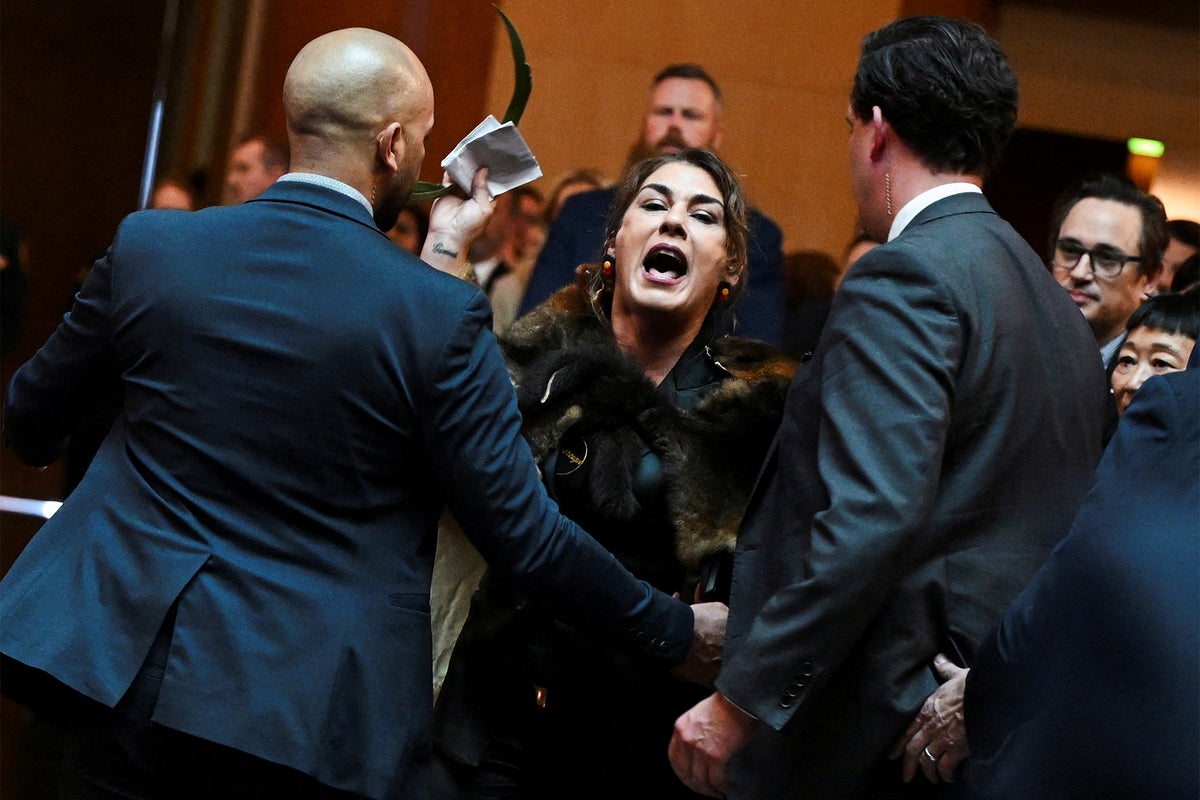An Indigenous Australian senator who accused King Charles of genocide during a fiery parliament outburst has reignited the debate about returning colonial artefacts held in Britain.
Lidia Thorpe disrupted Charles’s welcome to the capital Canberra, shouting: “Give us our land back. Give us what you stole from us … Our babies, our bones, our skulls, our people. You destroyed our land”.
Her outburst overshadowed a speech highlighting his debt to the descendants of Australia’s first inhabitants, but it was the “bones and skulls” statement that led to particular furore.

Britain is facing growing calls for colonial possession to be repatriated, something sections of the Australian government has for several decades lobbied for.
At least 39,000 Indigenous Australian artefacts including bags, clubs, shields and pieces of contemporary art have been located in dozens of museums across the UK and Ireland, a joint study by the British Museum and the Australian Research Council found.
Among the worst accusations levied at Britain during Australia’s colonial period include murder, rape and the spreading of disease. While further accusations include the collecting of body parts for scientific purposes and “race research”.
According to academic Paul Turnbull, “Darwinian” scientists obtained and examined Australian ancestral remains in order to “prove their evolutionary inferiority and thereby legitimate their violent dispossession and near enslavement”.
The population of Indigenous people was an estimated 750,000 people in the pre-colonial era, the Aboriginal Heritage Office has calculated, and plummeted by some 90 per cent following English occupation, according to research.
Some museums, including the Natural History Museum in London, have also held skulls and human remains collected during the colonial settlement of Australia.
Last year, the Pitt Rivers Museum and Oxford University Museum of Natural History announced the return of 11 Aboriginal ancestors’ remains to Australia.
In 2019, the Natural History Museum and Manchester Museum also returned Aboriginal remains. The institutions handed over 174 items, including arm bands and baskets, to the Aboriginal Anindilyakwa community based within Australia’s Northern Territory.
Over 1,000 ancestors have now been returned from the UK to Australia, the National Indigenous Times has reported.
“The Australian High Commission has done a lot of work on the return of artifacts — we continue to do that, both in respect of the British Museum, but also other holders of Australian indigenous artifacts,” Stephen Francis, the Australian High Commissioner to the United Kingdom, said last year.
“I think there’s a much greater appreciation now than there was previously of the need to be fully respectful of indigenous communities.
“We take very seriously, particularly in a referendum year, our obligations and responsibility to our indigenous communities and First Nations people.”
The Independent has contacted Buckingham Palace for comment.

